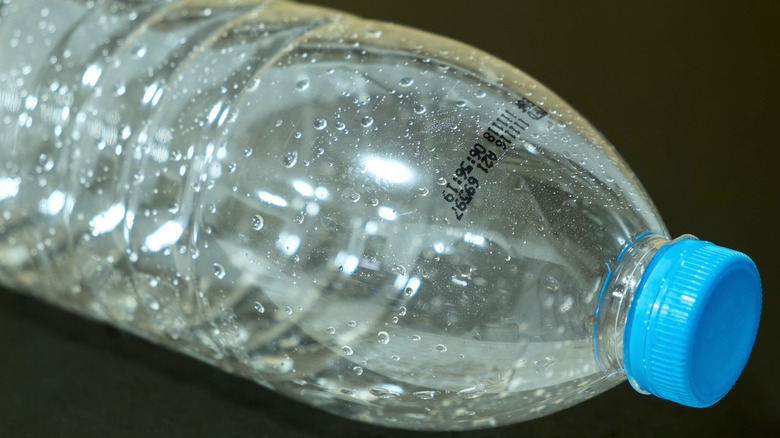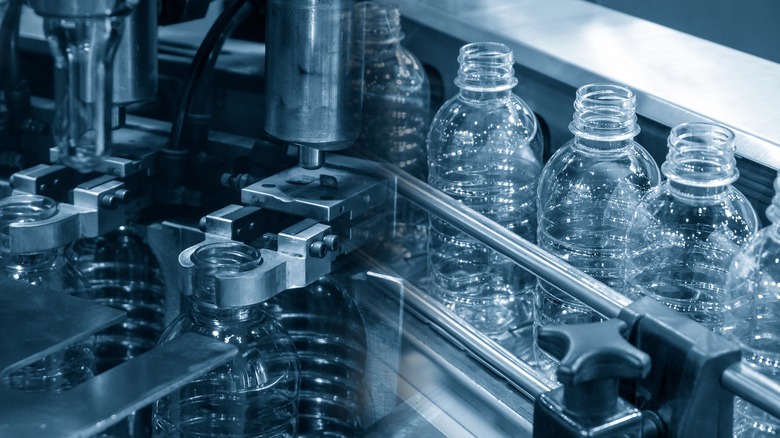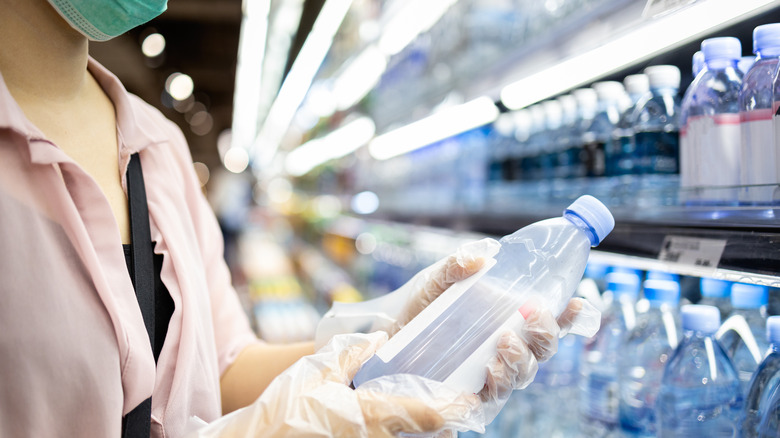Does Bottled Water Actually 'Expire'?
Bottled water consumption has nearly doubled between 2010 and 2020 as more and more people turn away from soft drinks. Even diet soda carries health risks ranging from depression and kidney problems to headaches. Bottled water has its share of controversy, too, but it's still a better option than Coke. What's surprising is that it comes with an expiration date.
For example, Nestle Pure Life purified water lasts up to three months, whereas FIJI water has a two-year shelf life. But even so, the U.S. Food and Drug Administration (FDA) says bottled water can last forever if left unopened and stored in a cool, dark place. However, storing it for long periods can alter its taste. The truth is that water doesn't expire, but the bottle that holds it can suffer changes that ultimately affect water quality.
Another explanation is that manufacturers may use the same machine to print labels on bottled water and soft drinks. Some labels also mention the nutrition facts, bottling date, and other relevant information, including the "best by" date. But is it safe to drink expired bottled water? Let's find out.
Bottled water doesn't go bad, but its quality can deteriorate
If you knew what bottled water does to the environment, you'd probably switch to tap water and reusable bottles. However, what's even more concerning is the danger posed by the chemicals in plastic packaging. For example, a 2008 study found that plastic bottles exposed to high temperatures can leak antimony, reports the journal Water Research. This chemical is a potential carcinogen and may also affect the lungs, skin, and digestive system, according to a 2010 review published in the International Journal of Environmental Research and Public Health.
Antimony can cause nausea and vomiting upon ingestion. In the 1920s, 70 people required medical care after drinking lemonade containing traces of this semimetallic chemical, notes the above review. Only a tiny amount of it makes its way into the water (or other liquids), but there's still a risk of contamination. Note that glass bottles can contain traces of antimony, too, according to a 2020 study presented in the journal Chemosphere.
Expired bottled water may also contain traces of polyethylene terephthalate (PET) and other plastics. These compounds can leak into the water over time, especially at high temperatures. Additionally, plastic materials can absorb odors from the environment and change the taste of water. For this reason, it's best to store the bottles away from household cleaners, paint, and other chemicals.
Is it safe to drink expired bottled water?
Bottled water won't spoil or start to taste rancid, but it can still make you sick if the bottle is stored for too long or in improper conditions. Trust us, you don't want to drink bottled water after its expiration date. "A chemical called bisphenol-A, or BPA, along with other things used to manufacture plastic, can leach into your water if the bottle heats up or sits in the sun," said researcher Kellogg Schwab, Ph.D., in an interview with Time. These compounds can put you at risk for cancer, heart disease, hormone imbalances, and other ailments in the long run.
Expired bottled water can also become a breeding ground for bacteria, viruses, fungi, and other pathogens. Some examples are Escherichia coli, Helicobacter pylori, Salmonella enterica, Klebsiella pneumoniae, and Candida albicans. These microorganisms have been linked to digestive problems, lung disease, kidney failure, and respiratory illnesses, warns a 2019 review published in the journal Bottled and Packaged Water. The risk of contamination increases if the bottle has been opened.
While the plastics and microorganisms in bottled water can affect its appearance, odor, and taste, these changes can be subtle. In rare cases, you may notice a slimy film or musty odors. If that happens, your best bet is to discard the bottle or heat your water to a boil for one minute to kill bacteria and other pathogens. However, boiling will not remove the antimony and plastics.


